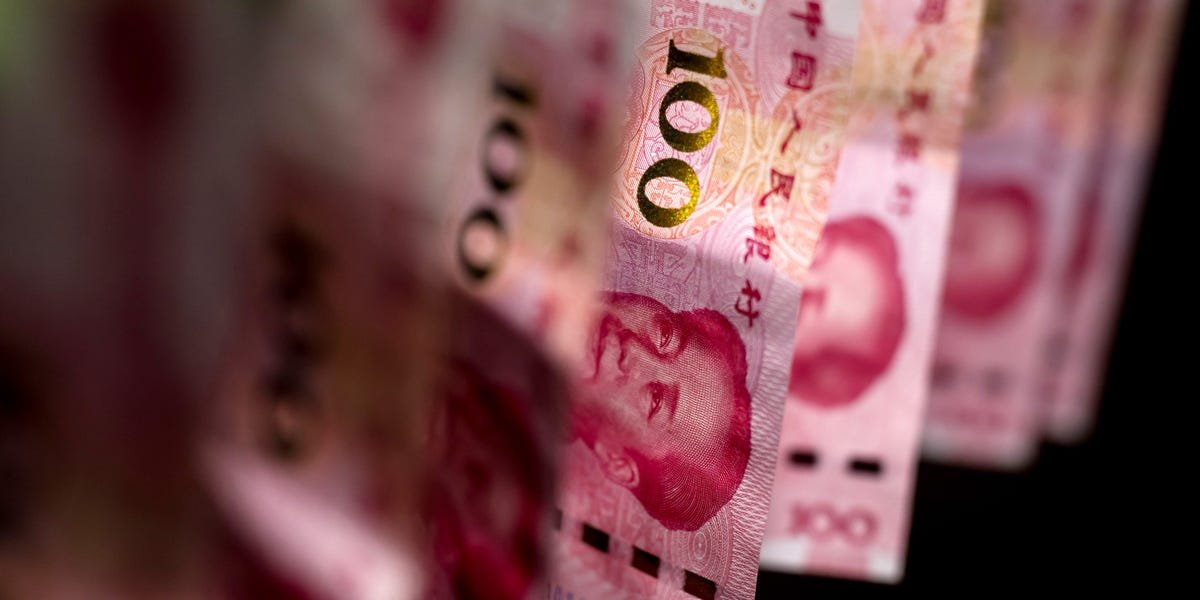- Russian banks are running low on yuan, Bloomberg reported.
- That’s forced Russian firms to pay more to access the currency.
- Yuan swap borrowing has doubled since June, Bloomberg calculated.
An intensifying supply crunch in the Chinese yuan has pressured Russians to embrace a costlier method of securing the needed currency, Bloomberg reported.
While the yuan has been a go-to tender for the Russian economy amid Western sanctions, fresh constraints from the US this summer have forced some Chinese lenders to cut ties, deepening payment issues between Moscow and Beijing.
With the yuan liquidity shortfall doubling, Russian firms have grown increasingly dependent on yuan swaps provided by the Bank of Russia, Bloomberg said, but borrowing the yuan this way comes at a higher rate.
This hasn’t stopped yuan swap activity from ballooning.
According to the outlet’s calculations, the average daily volume of swap borrowing climbed to 20 billion yuan this month, double the 10 billion yuan borrowed in June.
That month, the US provided the Treasury Department broader power to penalize foreign institutions that do business with Russia and support Moscow’s war machine. This involved many Chinese entities, given that Beijing has become a major trade partner to Russia following the Kremlin’s 2022 invasion of Ukraine.
But even before the fresh sanctions package took effect this summer, Chinese banks were already halting yuan payments with Russia over fears of Western repercussions. The trend only swelled in June, and Russian exporters now note difficulty getting paid.
And yet, the US may still have more planned for China. Last month, National Security Adviser Jake Sullivan hinted that fresh sanctions could target Chinese dealers that have not ended their support of Russia:
“We think China should stop because we think it is profoundly outside of the bounds of decent conduct by nation states,” he said at a forum.
Ironically, June’s sanctions have boosted the yuan’s importance in Russia, given that the restrictions prompted the country’s main exchange to restrict the trade of dollars and euros.
The Carnegie Russia Eurasia Center then argued that China and Russia will find ways to get around Western sanctions, and noted that restrictions should have been put in place much earlier to be most effective.
For now, as liquidity stumbles, Russian firms increasingly turn to former Soviet countries to make payments, Bloomberg said.



